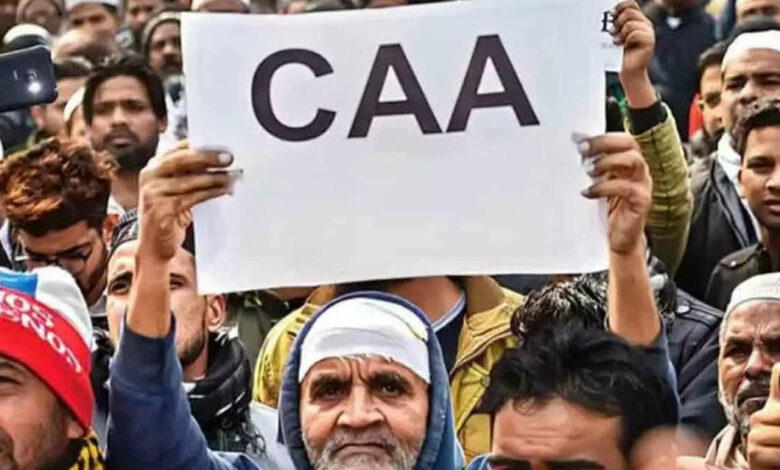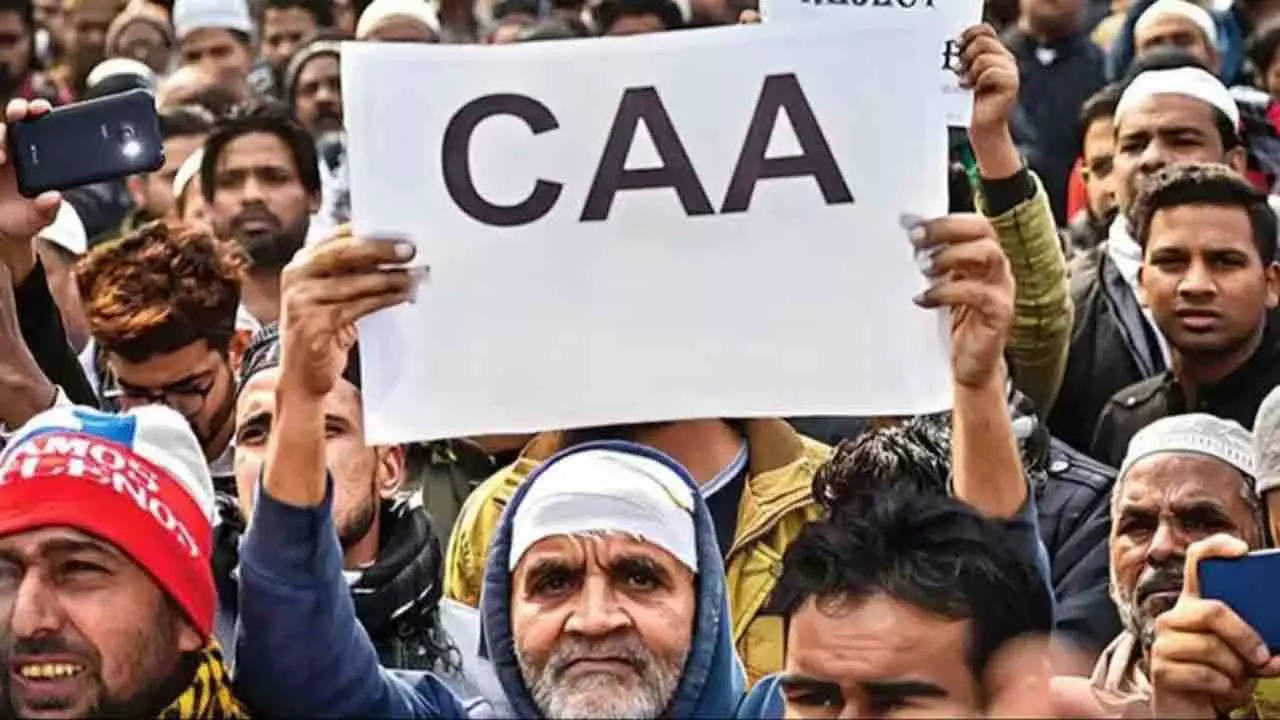CAA rules explained: How to apply for citizenship? Who are included and excluded? Here is all you need to know

The Home Ministry led by Amit Shah is exploring an online system for application, processing and grant of citizenship under CAA.
Eligibility: Who can apply for Citizenship
- Anyone of Indian origin seeking registration as a citizen of India
- Person married to a citizen of India, seeking registration as a citizen of India
- An application from a minor child of an Indian citizen, seeking registration as a citizen of India
- An individual whose parents are registered as citizens of India, seeking registration as a citizen of India
- An application from individual who or either of their parents was a citizen of Independent India, seeking registration as a citizen of India
- An individual who is registered as an Overseas Citizen of India Cardholder
List of important documents to keep ready:
- An affidavit verifying the accuracy of the statements made in the application along with an affidavit from an Indian citizen testifying the character of the applicant
- A declaration from the applicant that he has adequate knowledge of one of the languages as specified in the Eighth Schedule to the Constitution
The rule specifically mentions that, “The applicant shall be considered to have adequate knowledge of the concerned language if he can speak or read or write that language.”
Character, language are some of the other criteria that are required for getting citizenship under the newly notified rules. The application process for citizenship by naturalization, as outlined in Form VIIIA, requires the completion of several key steps and submission of specific documentation.
Form VIIIA Submission: First, the applicant submits Form VIIIA, which has all important personal details and information required for the naturalization process
Affidavit Verification: The applicant must provide an affidavit verifying the accuracy of the statements made in the application. This affidavit serves to ensure the truthfulness of the provided information.
Character Affidavit: The applicant must present an affidavit from an Indian citizen attesting to the applicant’s character. This affidavit acts as a testament to the applicant’s reputation and conduct
Language Declaration: The applicant is required to declare that they possess adequate knowledge of one of the languages specified in the Eighth Schedule to the Constitution of India. This declaration confirms the applicant’s linguistic proficiency, a crucial aspect of integration into Indian society.What is the process of application submission?
Under section 6B of the Citizenship Act, 1955, individuals seeking registration or naturalization must follow a the following process:
Submission of Application: Applications should be submitted electronically by the applicant to the Empowered Committee through the District Level Committee designated by the Central Government
Acknowledgment: Upon submission, an acknowledgment in Form IX is electronically generated.
Document Verification: Led by a Designated Officer, the District Level Committee verifies the documents submitted along with the application.
Oath of Allegiance: The Designated Officer administers the oath of allegiance specified in the Second Schedule to the Citizenship Act, 1955, to the applicant. The signed oath, along with confirmation of document verification, is forwarded electronically to the Empowered Committee.
Refusal Consideration: The selected committee has the power to reject the application if an applicant fails to appear in person despite reasonable opportunities.
Renunciation Declaration: Every application includes a declaration by the applicant renouncing their citizenship of their current country, irrevocably and without future claim.
What is the status of petitions filed challenging constitutional validity of CAA?
Several petitions have been filed challenging the constitutional validity of the Citizenship (Amendment) Act, 2019, including by RJD leader Manoj Jha, Trinamool Congress MP Mahua Moitra and AIMIM leader Asaduddin Owaisi.
Muslim body Jamiat Ulama-i-Hind, All Assam Students Union (AASU), Peace Party, CPI, NGOs ‘Rihai Manch’ and Citizens Against Hate, advocate M L Sharma, and law students have also approached the top court. The top court has issued notice to the Centre and sought its response by the second week of January on a batch of pleas challenging the CAA.
Here are the areas where CAA does not apply:
The amendments introduced by CAA do not apply to areas covered by the Constitution’s sixth schedule. These are the autonomous tribal-dominated regions in Assam, Meghalaya, Tripura, and Mizoram. This means migrants belonging to the identified communities from Afghanistan, Bangladesh, and Pakistan based on religion can’t be given Indian citizenship if they are residents in these areas. CAA also does not apply to states with an inner-line permit (ILP) regime — primarily in North-East India.
(With ToI inputs)
Source link





